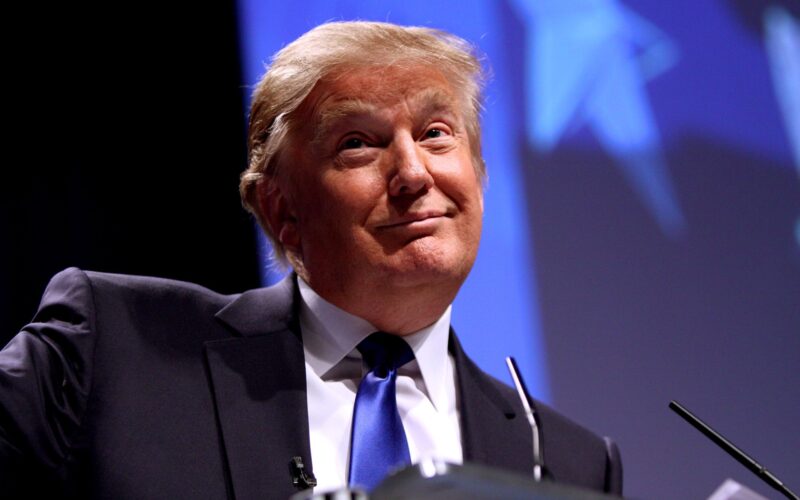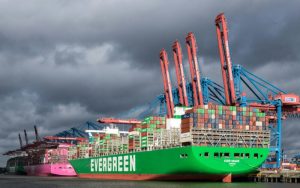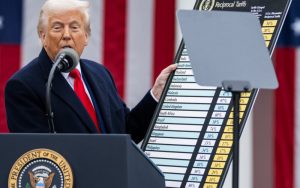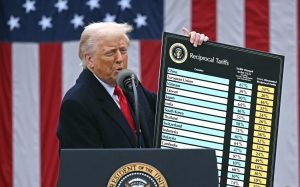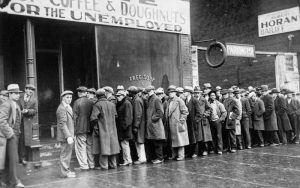
As the world adjusts to Trump’s tariff outburst, the extent of US clout will be laid bare, writes Bryan Gibson.
Global markets are continuing to stagger as United States President Donald Trump puts his foot down and imposes tariffs on the US’s trading partners.
At the time of writing, the S&P 500 was down almost 19% from its February peak, just short of the 20% that tips it into a bear market – the recognised marker of extreme market pessimism.
Stocks in other countries fared worse than in the US, and with reciprocal tariffs being announced, it’s difficult to see this situation resolving any time soon.
For the most part, New Zealand exporters are breathing through their noses, which is probably the best strategy because things are moving so fast that something said yesterday could wreck things tomorrow.
As for Trump, he’s beginning to face opposition from some of his most staunch followers, in government and in business.
A libertarian group funded by Leonard Leo and Charles Koch, who previously backed Trump’s election campaign, has sued the administration over its tariff regime.
A number of Republican senators have openly questioned the strategy, no doubt wary of the effect tariffs will have on the communities they represent.
One lawmaker asked a Trump trade representative to explain why Australia was hit with a 10% tariff despite the US having a trade surplus with it. He also questioned whether the move would put the strong intelligence relationship, through AUKUS, at risk.
New Zealand is part of AUKUS as well – and is also on the receiving end of Trump’s trade tirade.
A fair number of column inches have been spent trying to figure out what his plan is, because there’s no coherent economic strategy evident in what he’s done so far.
Trump says he wants to bring manufacturing back to the US, but doesn’t appear to understand either the way globalisation has progressed over the past century, or the complexities of supply chains.
For example, he’s put tariffs on Botswana, which exports diamonds to the US, and on most of the major coffee producing nations.
The US doesn’t have the geology or the climate to produce these things itself.
And many people fear that the damage to global businesses like McDonald’s, Starbucks and Nike will be more than just the loss of stock value.
They’re already reporting that people in other countries who once saw a job with them as a career goal are now looking locally for their pay cheque.
The reputational damage could be massive and lasting.
Maybe the best explanation for Trump’s tariffs are that they’re not about economics at all, but about power.
Trump expects other countries will bow to him, do his bidding, and then he’ll erase the tariffs.
But as our columnist Alan Emerson points out, trading nations are moving to reshape the global economy and looking for a way to restore rules-based trade.
The BRICS alliance that includes Brazil, Russia, India, China, South Africa, Iran and others is growing its influence. Recently, historical rivals China, Japan and South Korea announced a new alliance to bolster trade partnerships.
The geopolitical and macroeconomic playing field is changing quickly.
The US president will find out soon enough whether he actually has the power he believes he does.
You can now read the most important #news on #eDairyNews #Whatsapp channels!!!
🇺🇸 eDairy News INGLÊS: https://whatsapp.com/channel/0029VaKsjzGDTkJyIN6hcP1K
